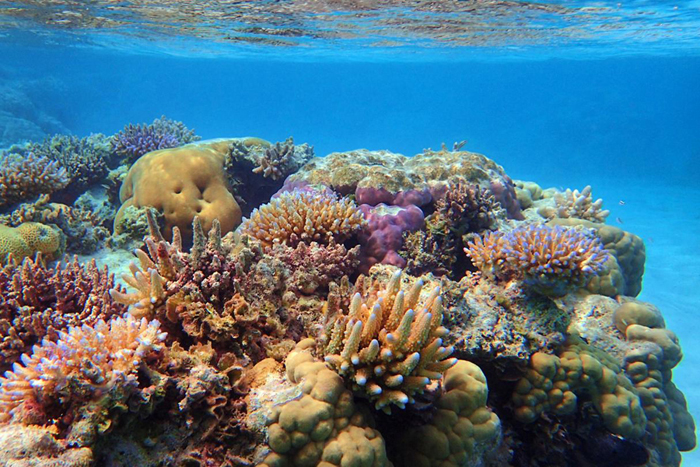Identifying locations for coral reef climate resilience

Coral reefs are critical providers of food, economic opportunity, and cultural value in the Pacific Islands. Coral bleaching events, driven by extreme water temperatures, jeopardize reefs’ ability to continue providing these services. Climate change is increasing the frequency and intensity of marine heat waves leading to bleaching events, reducing the amount of time for full recovery, and increasing the chances of permanent damage to reefs. Reef managers urgently need strategies that will improve reef resilience, increasing the reefs’ ability to withstand harsh conditions or recover quickly after damage. Example strategies include restoring coral in areas with good conditions for coral survival, protecting naturally fast-recovering coral, or maintaining populations of algae-eating fish and invertebrates to combat algal smothering of damaged reefs before they can recover.
Resilience-based management is currently being implemented in the Main Hawaiian Islands and has gained attention among resource managers throughout the U.S. Pacific Islands. The main goal of this project is to identify locations where these strategies could have the greatest chances of success in Guam and American Samoa. The research team aims to inform managers where coral and herbivore survival are favorable in the coming decades, which will assist them with allocating limited resources. Researchers will use map data on coral cover, coral diversity, herbivore populations, water conditions, temperature stress, and historic bleaching impacts to understand where these factors overlap. We will create maps and summary tables highlighting areas as suitable or unsuitable for implementing herbivore management as a resilience strategy. These maps should be a valuable tool for marine resource managers and island communities to make decisions on reef protection measures and to prepare for future climate-driven bleaching events.
PROJECT DETAILS
FUNDED:
FY2020
PI:
Monica Moritsch
Research Ecologist, USGS Western Geographic Science Center

